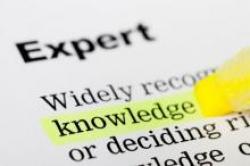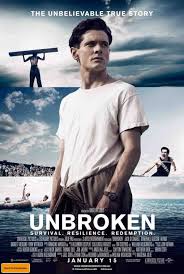
What Is Your Voice: Expert or Fellow-Traveler? 5 Tips to Communicate with More Influence
Whether to friends and family or to an audience, whether consciously or unconsciously, we all assume a certain voice when we speak. Take this little test to find out if you are more of an expert or a fellow traveler…
1. Have you demonstrated mastery of a particular interest or passion?
2. Have you demonstrated over the long haul the ability to love well and have great relationships? Have you raised an outstanding family?
3. Have you demonstrated the power of the Holy Spirit in your life out of deep devotion to prayer and God’s Word, or in the crucible of suffering?
4. Have you demonstrated mastery of a profession or trade in your career (running an organization, producing goods or services)?
5. Do you have earned credentials behind your name?
6. Do you do research and interviews, analyzing data and synthesizing conclusions?
7. Are you respected and sought out for your knowledge or experience?
If you answered yes to some of these questions then you probably have true expertise to offer others.
Here's another little test to discern whether you are a fellow traveler:
1. Do you often begin sentences with, “Here's what I've been struggling with…,” “Here's what I've been learning…,” or “Here’s something you might find helpful…”?
2. Do you find yourself mostly appealing to emotion? Mostly offering stories to convince the “heart”?
3. When you engage in conversation do you find yourself offering a few nuggets to see if others respond with interest before continuing?
4. Do you continue to seek their feedback regularly during the conversation?
5. Are you a good listener? Do you really seek and value others’ insights?
6. Do you see yourself as having already arrived, or are you excited about the journey you’re on? Are you excited about sharing it with others?
A fellow traveler is someone who is making the journey with you. You are generally headed in the same direction, even though you may have different levels of skill and knowledge.
There's a strong pull in our postmodern culture to reject hierarchy. The spirit of our times is one of radical autonomy. The operative words are “freedom” and “choice.”
When freedom widens endlessly there is always another option for truth or goodness to explore. So the journey is everything. But you never arrive at the destination. This is why, in today's culture, speaking as a fellow traveler is so valued. People are looking for voices to help them on their journey, but with less hierarchy, more collaboration among peers who help each other achieve their desires.
But there is a great tension here: we've not been created to live as autonomous individuals launched on an endless journey of options. Woven into our heart of hearts is a great need for a good Shepherd.
And, in our daily experience, the availability of information has exploded so that we naturally look for the guidance of voices we trust to make sense of it. The truth is, we need experts and expertise. (This was so apparent the way the last presidential election played out.)
So how can we speak in a posture of influence in today's culture? Two tips for fellow-travelers:
1. In today’s culture you have a great advantage. Work hard at learning how to narrate the journey. Author Anne Lamotte has said something I’ll never forget: “Having a great narrator is like having a great friend whose company you love, whose mind you love to pick, whose running commentary totally holds your attention, who makes you laugh out loud, whose lines you always want to steal. When you have a friend like this, she can say, "Hey, I've got to drive up to the dump in Petaluma–wanna come along?" and you honestly can't think of anything in the world you'd rather do.” True. No matter what the journey is.
Be that great narrator! Read the blogs or books of great fellow-travelers and see how they do it: Jen Hatmaker, Ann Voskamp, Lindsey O’Conner. A great fellow-traveler speaks with radical transparency. Not from the place of having arrived, but slogging in the trenches.
2. Continue to use and develop every skill in the “Fellow-Traveler test.” Talk about the issues you’re dealing with in your own life. Your audience is probably dealing with the same issues. Caution: You can tell stories all the time, but you’ll forfeit the trust you gain by offering evidence and research. God created us with minds and hearts. Try appealing to both. Just wrap them in your conversation with the humble attitude of a fellow traveler.
Today's culture is so anti-hierarchy that speaking as an expert, especially presenting claims of moral authority, can quickly turn off your listeners. So, how can you dial up your connection? Here are two tips for those who are experts:
1. Experts have to intentionally guard against pride. Knowledge puffs up (1 Cor 8:1). When you engage in conversation do you a) often find yourself making little speeches– descriptions, reflections or opinions—that go on for many minutes without making space for feedback from your listeners? Or b) find yourself eagerly awaiting the moment when you can show what you know? Or c) Do you often begin sentences with “You need to…,” “You ought to…,” or “You should…”?
You may want to reflect on Romans 12:3 “For by the grace given me I say to every one of you: Do not think of yourself more highly than you ought, but rather think of yourself with sober judgment, in accordance with the measure of faith God has given you.”
I love the way Paul begins this verse. It feels like an humble acknowledgement…”Yes, I used to think more highly of myself too. But by God’s grace I offer you the same wisdom God has given me.”
I also thought too highly of myself earlier in life. I’m sure sometimes I still do. But “by God’s grace” he has broken and humbled me and helped me to think of myself much more “soberly.” I still have to be careful not to fall into these inflated speech patterns. (Speech patterns die hard.) An expert who speaks from a heart of humility will have far more influence than one who speaks from their prideful tower of knowledge.
2. The more you speak as a fellow traveler, the more trust you will build. Especially when you share your failures and struggles. It resonates with today’s audience looking for empathy and transparency. This is especially true the younger your audience, even in the church.
In conversation avoid making “speeches.” Adopt the speech patterns mentioned in the fellow traveler test. When you are giving an actual speech ask for dialogue.
Do you find yourself mostly appealing to reason? Mostly offering evidence to convince the “head”? Tell stories to reach the heart. As VeggieTales creator Phil Vischer once famously said: Our audience wants a Twinkie. We want our audience to eat an apple. So we take the apple and wrap it in a Twinkie.
Tell stories from your own experience. Often the desire of today’s audience is not much to know what you know, but to experience what you’ve experienced.
Finally, one tip for both fellow travelers and experts:
Be a finger pointing to Jesus. Jesus was the expert of all experts. He knew how to alter weather patterns, change the chemical composition of water to wine and reverse death. He knows what the best rocket scientists know and more…he created the laws of physics that make rocket flight possible and the universe that rockets fly in. He knows how to love better than anyone and has raised an amazing family. He is one with the Father and the Holy Spirit and is the ultimate source of spiritual knowledge.
But out of his deep love for us he left the hierarchy of equality with the Father and emptied himself to become the ultimate fellow-traveler. He entered into the daily routine, the long waits, the loneliness. The abandonment and betrayal. He ate and slept on the journey to the cross with his disciples, often tired, hot and hungry. In his freedom he chose to obey his Father, even when it meant cruel abuse, torture and death on the cross—all to redeem us and give us life and joy.
Is your voice getting in the way of your influence? Jesus sets the ultimate example of being both the expert and the fellow-traveler.


